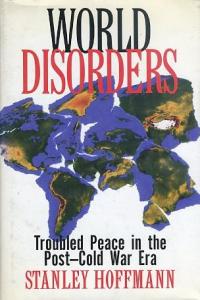
İkinci El
Long one of the field’s most distinguished thinkers, Hoffmann brings together in this volume his important recent work on international politics. Many published here for the first time, these essays offer incisive reflections upon the reemergence of nationalism and ethnic conflicts in Europe, the redefined role of military intervention, and other uncertainties brought on by the demise of the Cold War. New to this edition is a current analysis of the Kosovo conflict. Woven throughout are his clear-eyed assessments of contending approaches to the study of international relations.
Stanley Hoffmann has remarked that “It wasn’t I who chose to study world politics. World politics forced themselves upon me.” A rootless child of World War II; Austrian, French, and later American, he has always maintained a unique balance and perspective on global affairs. Long one of the field’s most distinguished thinkers, Hoffmann brings together in this volume his important recent work on international politics. Many published here for the first time, these essays offer incisive reflections upon the reemergence of nationalism and ethnic conflicts in Europe, the redefined role of military intervention, and other uncertainties brought on by the demise of the Cold War. Hoffmann weighs the influence on theory and policy of such disparate figures as John Rawls, Hedley Bull, and George Schultz. Woven throughout are his clear-eyed assessments of contending approaches to the study of international relations.
İkinci El
Long one of the field’s most distinguished thinkers, Hoffmann brings together in this volume his important recent work on international politics. Many published here for the first time, these essays offer incisive reflections upon the reemergence of nationalism and ethnic conflicts in Europe, the redefined role of military intervention, and other uncertainties brought on by the demise of the Cold War. New to this edition is a current analysis of the Kosovo conflict. Woven throughout are his clear-eyed assessments of contending approaches to the study of international relations.
Stanley Hoffmann has remarked that “It wasn’t I who chose to study world politics. World politics forced themselves upon me.” A rootless child of World War II; Austrian, French, and later American, he has always maintained a unique balance and perspective on global affairs. Long one of the field’s most distinguished thinkers, Hoffmann brings together in this volume his important recent work on international politics. Many published here for the first time, these essays offer incisive reflections upon the reemergence of nationalism and ethnic conflicts in Europe, the redefined role of military intervention, and other uncertainties brought on by the demise of the Cold War. Hoffmann weighs the influence on theory and policy of such disparate figures as John Rawls, Hedley Bull, and George Schultz. Woven throughout are his clear-eyed assessments of contending approaches to the study of international relations.
